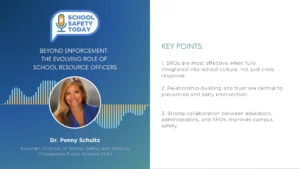Upskilling Strategies That Work
The COVID-19 pandemic has had a devastating effect on the nation’s economy, with 13.6 million Americans out of work in August 2020. According to McKinsey, even before the current crisis, evolving technologies and new ways of working were disrupting jobs and the skills employees needed to do them. This shift, coupled with a dramatic split in college attendance between higher and lower income students, has accelerated the need for programs that can bridge the gap for untapped talent with non-traditional backgrounds.
“This has been an unpredictable, and uncertain year, but it’s also compelled people to hone in on what’s most important. For many organizations, that’s taking action to hire, support and retain a diverse and inclusive workforce,” said Jennifer Carlson, co-founder and executive director, Apprenti. “Closing these gaps helps lift our economy as we recover from the pandemic and also builds organizations that look more like the communities in which they operate. This contract from the Department of Labor solidifies the continued need for our program, and apprenticeship as a national system, allowing us to expand our proven model and create jobs during a time it’s needed most.”
Apprenti, Washington State’s first registered tech apprenticeship program, announced this fall that the U.S. Department of Labor has awarded it a $7.5 million, five-year contract to continue its nationwide expansion. The program is the nation’s first registered tech apprenticeship program that places diverse talent into top tech roles across the U.S. Apprenti offers a proven, reliable pipeline for underrepresented groups, bridging the talent gap and giving diverse talent with nontraditional backgrounds the opportunity to apprentice at some of the top companies in the world.
Apprenti currently operates in 16 U.S. markets. Apprenti has placed more than 1,000 apprentices nationwide at top companies including Microsoft, Wayfair, and JPMorgan Chase. More than and 80 percent of these apprentices have been retained or hired post-apprenticeship with significantly higher salaries than previous employment. For example, apprentices in Washington State earn an average salary of $87,209n in their first year after graduation, which is a 114% increase based on their income prior to the program.
This news comes on the heels of a momentous year for Apprenti. The organization expanded to three new markets — New Jersey, Kansas, and Delaware — due to increased employer demand. Apprenti has also signed on over 20 new hiring partners in 2020.









